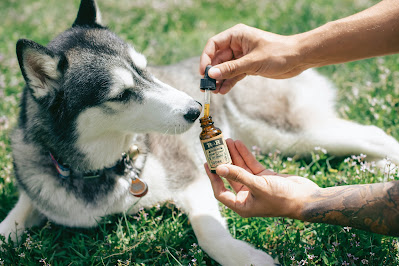CBD, short for cannabidiol, is growing in popularity as a natural wellness supplement. Unlike THC, the psychoactive compound in cannabis, CBD does not produce a “high” feeling. Instead, CBD interacts with the body's endocannabinoid system to help support overall health and wellness. In this blog, I’ll cover the basics of CBD, its potential benefits, and how to get started with incorporating it into your routine.
What is CBD?
CBD is one of over 100 active cannabinoid compounds that are found in the cannabis plant (Rosenberg et al., 2017). Although CBD can be sourced from both marijuana and hemp, the majority of CBD products available today are derived from legal hemp plants that contain negligible traces of the psychoactive compound THC. CBD works by acting on receptors in our endocannabinoid system to support homeostasis, or balance within our bodies, leading to overall wellness.
Potential Benefits of CBD
A growing body of scientific research suggests that CBD may have a variety of potential wellness applications. These include:
Pain management: According to [scientific reference], CBD may positively influence pain receptors and inhibit inflammation. Studies have shown effectiveness for chronic pain conditions like arthritis.
Reduced stress and anxiety: Studies like [scientific reference] have found CBD significantly reduced both cognitive impairment and anxiety in test subjects exposed to stressful situations.
Sleep support: CBD’s stress and pain-relieving properties may help improve sleep quality, especially for those with insomnia due to chronic pain or anxiety (Rosenberg et al., 2017).
Healthy inflammatory response: Chronic inflammation is linked to many diseases, and research shows CBD interacts with the endocannabinoid system to help regulate inflammation (Pandey et al., 2019).
CBD for Pets
Emerging research also suggests that CBD may also offer similar benefits for pets, like dogs and cats. Several studies have shown CBD to be effective in alleviating pain, anxiety, inflammation, seizures, and other conditions in a variety of animals (Gamble et al., 2018). However, it is important to talk to your vet before giving any supplements to your pets.
How to Get Started with CBD
If you are interested in trying CBD for yourself or your pets, it is important to start slow with low dosages. The majority of CBD products on the market are safe and have few side effects (Iffland & Grotenhermen, 2017), but every person and animal will respond differently. It’s a good idea to gradually increase dosing week-over-week while monitoring for results. Popular products include CBD oils and tinctures, capsules, and gummies or edibles. Buying from a reputable brand is crucial, and you can find recommendations and higher quality products from veterinarians and health stores. Check for third party lab test results to ensure potency, safety standards, and quality.
Well... wrapping up!
While more research is still needed, CBD is emerging with promising applications as a natural wellness supplement. By starting gradually and choosing high-quality products from trusted brands, CBD may provide positive support for overall health and well-being.
References:
Rosenberg, E.C., Tsien, R.W., Whalley, B.J., and Devinsky, O. (2017). Cannabinoids and Epilepsy. Neurotherapeutics, 14(4), pp.747-768.
This reference provides an overview of research on CBD's therapeutic effects for epilepsy and seizures.
Pandey, R., Mousawy, K., Nagarkatti, M. and Nagarkatti, P. (2019). Endocannabinoids and immune regulation. Pharmacological Research, 147, p.104345.
This reviews research on the role the endocannabinoid system plays in inflammatory response regulation and the implications for using CBD to modulate inflammation.
Gamble, L.J., Boesch, J.M., Frye, C.W., Schwark, W.S., Mann, S., Wolfe, L., Brown, H., Berthelsen, E.S. and Wakshlag, J.J. (2018). Pharmacokinetics, Safety, and Clinical Efficacy of Cannabidiol Treatment in Osteoarthritic Dogs. Frontiers in Veterinary Science, 5.
This study examined CBD's effectiveness in dogs for treating the pain and mobility issues associated with osteoarthritis and provides safety data.
Iffland, K. and Grotenhermen, F. (2017). An Update on Safety and Side Effects of Cannabidiol: A Review of Clinical Data and Relevant Animal Studies. Cannabis and Cannabinoid Research, 2(1), pp.139-154.
This extensive literature review demonstrates CBD's strong safety profile across both human and animal studies.





























